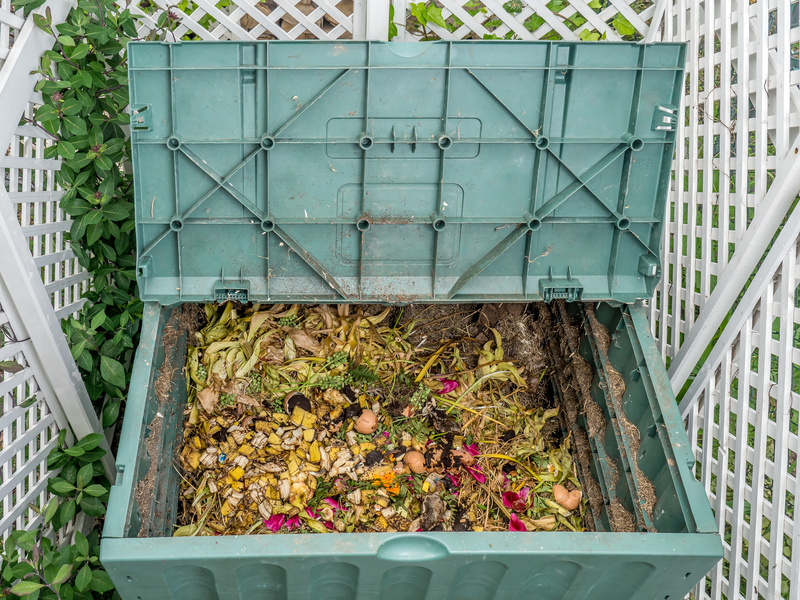Plastic-Free Supermarket Aisles: A Sustainable Future
As the environmental impact of plastic pollution becomes more evident, consumers and retailers alike are increasingly seeking sustainable alternatives. One of the most promising developments in this sphere is the advent of plastic-free supermarket aisles. These sections of supermarkets are dedicated to offering products packaged in materials that are biodegradable, compostable, or recyclable, thereby eliminating the reliance on single-use plastics. In this article, we will explore the concept, implementation, benefits, and challenges of plastic-free supermarket aisles.
What Are Plastic-Free Supermarket Aisles?
Plastic-free supermarket aisles are designated sections within a retail environment where all products available are devoid of traditional plastic packaging. These aisles typically feature items packed in materials like glass, metal, paper, and innovative biodegradable substances. The idea is to provide consumers with sustainable options, encouraging a shift towards more environmentally friendly purchasing behaviors.

Why Are Plastic-Free Aisles Important?
Plastic pollution is one of the most pressing environmental issues of our time. Each year, millions of tons of plastic waste end up in oceans and landfills, causing incalculable harm to wildlife and ecosystems. By offering plastic-free alternatives, supermarkets play a crucial role in reducing the demand for single-use plastics, thus lowering the environmental footprint of consumer activity. Moreover, these aisles serve as educational tools, raising awareness among shoppers about the importance of sustainable living.
Benefits of Plastic-Free Supermarket Aisles
The introduction of plastic-free aisles offers a multitude of advantages:
- Environmental Impact: By reducing the reliance on plastic, supermarkets help mitigate the damage to marine and terrestrial ecosystems.
- Consumer Choice: Shoppers are given the option to make environmentally responsible purchasing decisions.
- Innovation: The need for plastic alternatives drives technological advancements in packaging materials.
- Market Shift: Encourages other retailers and manufacturers to adopt sustainable practices.
- Brand Loyalty: Companies that prioritize sustainability tend to build stronger relationships with socially conscious consumers.
Challenges in Implementing Plastic-Free Aisles
While the concept is highly beneficial, executing plastic-free aisles comes with its own set of challenges:
- Cost: Sustainable packaging materials are often more expensive than traditional plastics.
- Supply Chain: Transitioning to plastic-free alternatives requires coordination across the entire supply chain, from manufacturers to retailers.
- Consumer Behavior: Not all consumers are willing to pay a premium for sustainable products, making market adoption slower.
- Regulatory Compliance: Different regions have varying regulations, complicating the standardization of plastic-free practices.
- Limited Availability: Not all products have readily available plastic-free packaging options, limiting the variety of items that can be included in these aisles.
Case Studies: Successful Implementations
Various supermarkets around the world have successfully integrated plastic-free aisles:
Ekoplaza (Netherlands)
In 2018, Dutch supermarket chain Ekoplaza launched the world's first plastic-free aisle in Amsterdam. This aisle featured over 700 products packaged in alternative materials. The initiative received global attention and set a precedent for other retailers to follow.
Iceland Foods (UK)
UK-based supermarket chain Iceland Foods committed to removing all plastic packaging from its own-brand products by 2023. They introduced plastic-free sections in some of their stores, demonstrating a firm commitment to sustainability.
Waitrose (UK)
Another UK retailer, Waitrose, launched their 'Unpacked' initiative, which eliminated single-use packaging for a variety of products. This included a dedicated aisle where shoppers could buy items such as grains, dried fruits, and even cleaning products in refillable containers.
The Future of Plastic-Free Aisles
The movement towards plastic-free supermarket aisles is gaining momentum. As consumer awareness and demand for sustainable products grow, retailers are more likely to adopt and expand these initiatives. Legislative support will also play a crucial role in mainstreaming plastic-free supermarkets. As more governments introduce bans on single-use plastics, the retail industry will need to adapt to meet new regulatory standards.
Technological advancements are expected to continue to break new ground in sustainable packaging solutions. Already, we see innovations such as edible packaging and plant-based plastics, which degrade much faster than conventional materials. The future looks promising, with a potential shift towards a circular economy where waste is minimized through responsible production and consumption patterns.

How Consumers Can Support Plastic-Free Aisles
Consumer behavior is a powerful driver of market trends. Here are some ways shoppers can support plastic-free initiatives:
- Make Informed Choices: Opt for products that come in biodegradable, compostable, or recyclable packaging.
- Bring Your Own Bags: Carry reusable shopping bags, containers, and jars to reduce packaging waste.
- Buy in Bulk: Purchasing bulk items can reduce individual packaging waste.
- Support Brands: Patronize companies that prioritize sustainable practices, and let them know you appreciate their efforts.
- Advocacy: Encourage local stores to introduce plastic-free aisles by expressing your interest and demand for sustainable options.
Conclusion
Plastic-free supermarket aisles represent a significant step towards a more sustainable future. They offer a viable solution to the plastic pollution crisis, provide consumers with environmentally friendly choices, and encourage industry-wide innovation. While challenges remain, the successful implementation of these aisles in various parts of the world serves as a beacon of hope. By making informed choices and advocating for sustainability, consumers can play a critical role in driving this movement forward. Ultimately, the transition to plastic-free retail environments is not just a trend, but a necessary evolution for the preservation of our planet.
